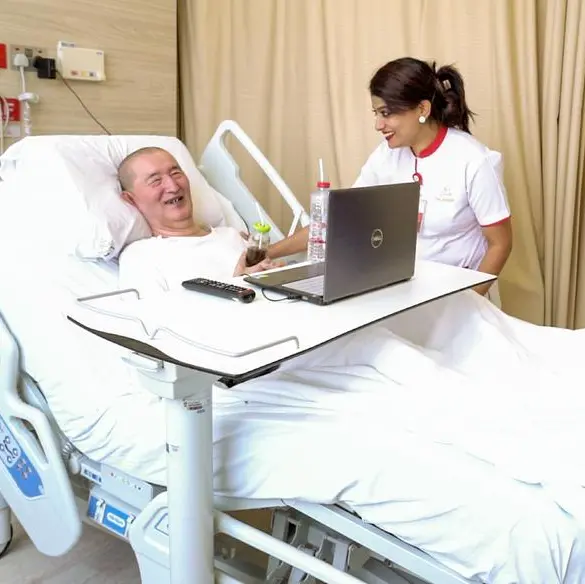PHOTO
DUBAI: Dubai received 630,000 international health tourists in 2021, according to a report released by the Dubai Health Authority (DHA) during the ongoing Arab Travel Market in Dubai.
Spending by international patients reached nearly AED730 million in the past year despite the global COVID-19 pandemic.
The report indicated that most health tourists who came to Dubai were from Asian countries, accounting for 38 percent of the total, whereas 24 percent were from Europe and 22 percent from Arab and GCC nations.
Fifty-five percent of the international health tourists were men and 45 percent were women. Almost 70 percent of treatment given to international health tourists was provided at multidisciplinary clinics, 16 percent at hospitals, and 14 percent at one-day surgery centres. The three medical specialities that attracted the most health tourists were dermatology (43 percent), dentistry (18 percent), and gynaecology (16 percent). Other medical specialities included orthopaedics, plastic surgery, ophthalmology, health and wellness, and fertility treatments.
The report presented extensive statistics regarding health tourists and medical specialities that saw high demand: The top three regions that attracted health tourists in dentistry included the Arab and Gulf Cooperation Council (GCC) region at 45 percent, Asia at 28 percent, and Europe at 15 percent.
The top three regions that attracted health tourists in dermatology were Asia (31 percent), Europe (27 percent) and Arab and GCC region (26 percent).
The top three regions in the field of gynaecology were Asia (57 percent), Europe (15 percent) and Arab and GCC region (13 percent).
The top three regions from which health tourists came for treatment in the field of orthopaedic surgery were Asia (36 percent), Europe (29 percent) and Arab and GCC region (17 percent).
The top three regions in the field of plastic surgery were Arab and GCC region (36 percent), Europe (31 percent), and Asia (14 percent).
The top three regions from which health tourists came for treatment in ophthalmology were Asia at 33 percent, Arab and GCC region at 23 percent, and Africa at 18 percent.
The top three regions in the field of fertility treatments were Asia (34 percent), Africa (24 percent) and Europe (19 percent).
The top three regions from which health tourists came for hospital treatments were Europe (45 percent), followed by the Arab and GCC region (25 percent) and Asia (12 percent).
Awadh Seghayer Al Ketbi, Director-General of the Dubai Health Authority, highlighted the exceptional global competitiveness of Dubai’s health tourism offerings and its health sector's tremendous growth and advancement in the past decade. Dubai’s emergence as a global health tourism destination reflects the high efficiency and capabilities of the emirate’s health infrastructure and facilities and the safe and high-quality multidisciplinary healthcare it offers, he said.
He further noted that the report reveals that several health tourists visiting Dubai came from countries with a long history in the medical sector, reflecting the high level of healthcare development achieved by Dubai, across governmental, private, or multinational institutions and its competencies in diverse medical specialities. He stressed that the Dubai Health Authority would continue to enhance health tourism in line with Dubai's aspirations and goals.
Al Ketbi praised the close cooperation between the private and government health sectors based on a shared vision to provide the highest quality of medical care and ensure Dubai is at the forefront of global cities in medical tourism.





















